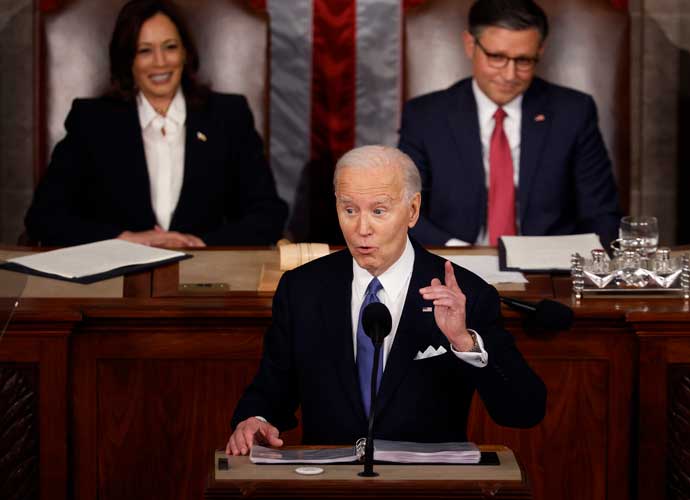Caroline Dhavernas On ‘Easy Living,’ SXSW [VIDEO EXCLUSIVE]
Caroline Dhavernas, known by many for her portrayal of Jane Tyler on Wonderfalls and Dr. Alana Bloom in Hannibal, now stars in the 2017 drama-thriller film Easy Living. In an exclusive interview with UInterview, she discusses what it was like to play her character, and how she prepared for the role.
Caroline Dhavernas Video Interview On ‘Easy Living’
Directed by Adam Keleman, Easy Living chronicles the life of Sherry (Dhavernas), a self-destructive makeup saleswoman, who turns to a romantic prospect and business opportunity in the hopes of turning a new leaf.
“[Sherry’s] at a point in her life where she’s trying to structure her life and make smart choices,” Dahvernas described. “She lives in this motel, she ends up in bars, she ends up with different men every night in her motel room.”
Upon seeing the movie for the first time, the actress said, “it really kind of struck me that ‘dude you’re not doing the right thing! You should just embrace the chaos that you are, and join the circus or something.'”
“She’s also a recovering alcoholic, so she’s filled with nuances and vulnerabilities, and for an actor that’s always fun to play with,” the 38-year-old actress added.
In preparing for the role, the Canadian actress divulged that she didn’t really do that much. “Most of the times you just feel it, wing it. I guess I’m a very instinctual actor. We started with two days of improv, which was amazing, because I got to know her better, and try stuff,” she said.
This film employs subtlety and doesn’t knock its audiences over the head with its core message.
“We’re not really naming a lot of things, it’s all underneath, and that’s what I like about this movie,” Dhavernas said. “We know there’s so much going on that’s not being said. And I think that’s kind of beautiful. We’re not trying to make sure the audience knows — we’re trusting them to feel everything with us.”
This type of nuanced filming is exemplified in one of her favorite scenes. “One of the most beautiful ones is the scene with my daughter in her bedroom. She was so light and she has everything underneath too and what she’s feeling,” the actress noted.
Dhavernas has also been working on a black-comedy TV series called Mary Kills People. The Canadian series was directed, edited and produced by women, which prompted numerous reporters to ask the actress what is was like to work with a women-filled team.
“I just say, ‘it’s just the same. They’re talented people. They don’t act in a different way because they’re women.'” the actress said. “I think we should celebrate the fact that women made this happen, but at the same time, I wish we didn’t have to talk about it.”
Easy Living debuted at SXSW on March 12, 2017, to positive reviews.
Sherry is a saleswoman who goes door to door, selling makeup. She's at a point in her life where she's trying to structure her life and make smart choices. She lives in this motel, she ends up in bars, she ends up with different men every night in her motel room. So she's trying very hard to be a normal person. I saw the movie for the first time last night, and even though i shot the movie, it really kind of struck me that "dude you're not doing the right thing! you should just embrace the chaos that you are, and join the circus or something." She's very charming and funny in her own way, and naive, and completely vulnerable and fragile. She also has a kid that her sister's taking care of, because she doesn't know how. She doesn't know how to offer a kid instruction. She's also a recovering alcoholic, so she's filled with nuances and vulnerabilities, and for an actor that's always fun to play with.
I don't know how I do that, it's funny because I think we'd like to think that actors really prepare themselves for parts, and sometimes you do, but most of the times you just feel it, wing it. I guess I'm a very instinctual actor. We started with two days of improv, which was amazing, because I got to know her better, and try stuff. So all the door to door moments with the women, we did at first, and we would just knock on doors, and they would open the door knowing we were coming that day. But they had no idea that as soon as they opened the door, we were already shooting. So it was fantastic, they all played along and gave me an opportunity to get to know Adam. And get to communicate together and know what we wanted to do, and so we took a couple of days off after those two scenes and we started to shoot the scripted scenes. So that was a real luxury to just feel the part before you play the actual scene.
One of the most beautiful ones is the scene with my daughter in her bedroom. She was so light and she has everything underneath too and what she's feeling. And we're not really naming a lot of things, it's all underneath, and that's what I like about this movie. We know there's so much going on that's not being said. And I think that's kind of beautiful. We're not trying to make sure the audience knows -- we're trusting them to feel everything with us. I love that. So that scene was great, because we barely have any scenes together. So that's the challenge: creating all this past and tension between a child and her mother, who's not really in her life any more, and make it believable that these two have a charged life and past together.
I think Jen's character is a great example because we never talk about her transition, we never talk about the fact that we probably knew each other before her transition. It's wonderful that it's not the theme of their relationship. It's just normal. And isn't that what we want? Recently I was doing a lot of press for a TV show I did. And it's directed and edited and produced and written by women. And journalists kept asking me, "how is it to be working with all these women? How different is it?" and I just say, "It's just the same. They're talented people. They don't act in a different way because they're women." And it's great that we're talking about it, because so many shows don't hire enough women to direct some episodes. So I think we should celebrate the fact that women made this happen, but at the same time, I wish we didn't have to talk about it. So it's the same with Jen's character in the movie. We're not talking about her transition. We're not talking about my sister and her partner being lesbians. It's just part of life. We've all accepted it, and we're all moving on. We're not pressing that button.
RELATED ARTICLES
Get the most-revealing celebrity conversations with the uInterview podcast!



![Caroline Dhavernas On ‘Easy Living,’ SXSW [VIDEO EXCLUSIVE]](https://cdn-o9.uinterview.com/wp-content/uploads/2017/04/Caroline.jpg)





Leave a comment